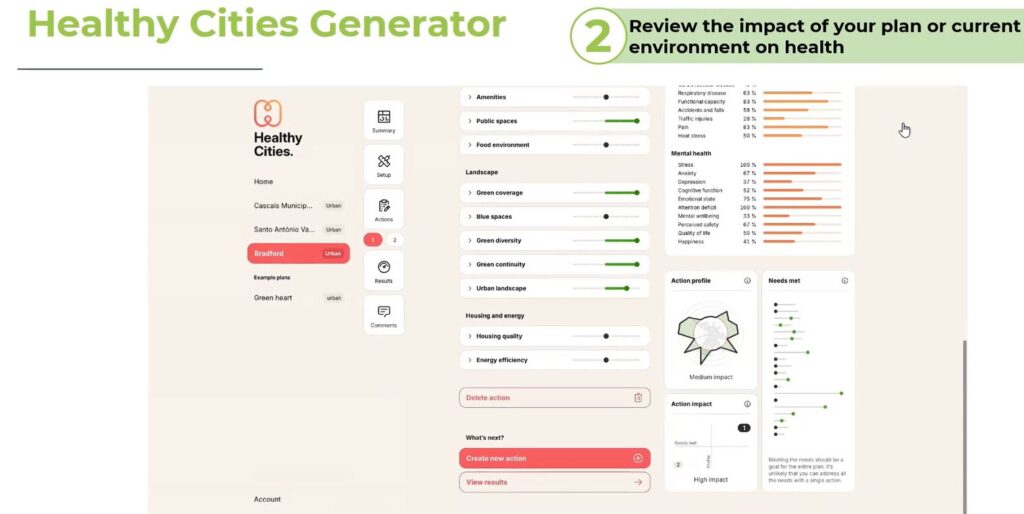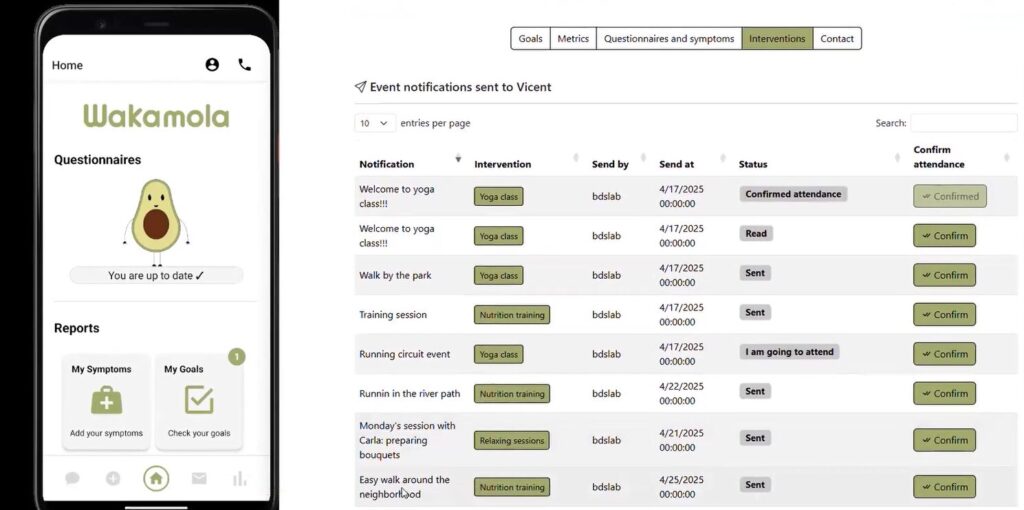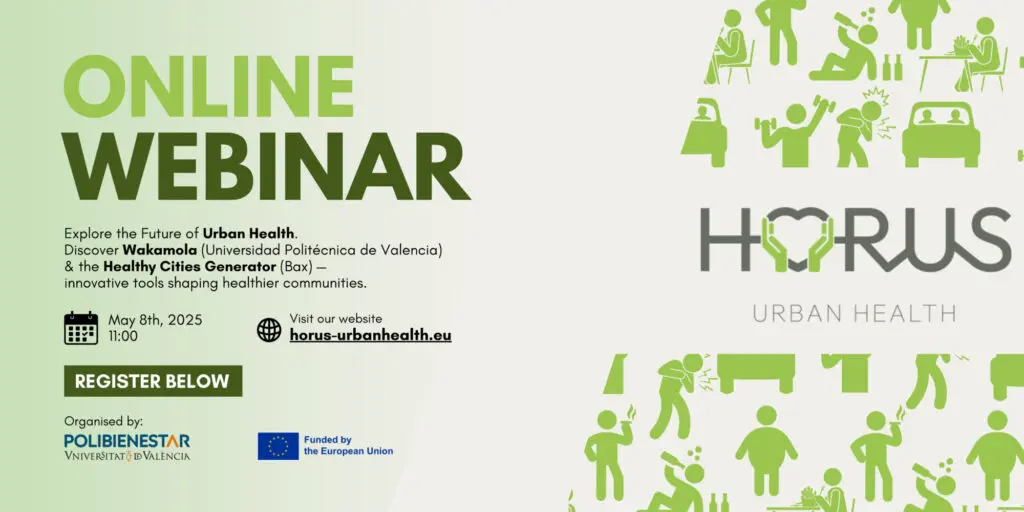On the 8th of May, we held a webinar as part of the HORUS Project, coordinated by Polibienestar, to showcase two key digital tools that have been developed and refined to support healthier urban living: the Healthy Cities Generator and the Wakamola App. The session brought together project partners and interested stakeholders to share how these tools are helping integrate health into urban planning.
Healthy Cities Generator – Health Meets Urban Design
Ruth Gow from Bax & Company walked us through the Healthy Cities Generator, a tool designed to help urban planners understand how changes to the built environment can affect public health. Although the tool existed before HORUS, the project gave us a valuable opportunity to improve it — especially to make it more usable in community-based processes.
Ruth explained that the tool links 20 urban health determinants (like population density, access to green areas, and mobility) with 30 health indicators, covering physical, mental, environmental, and lifestyle health factors. Users can assess the current state of a neighborhood, simulate the impact of planned interventions, and even estimate the economic savings resulting from better health outcomes.
Importantly, Ruth shared that one of the latest additions is a citizen engagement module. This allows local governments to gather feedback directly from residents via online surveys, compare perceptions across population groups (e.g., women, elderly), and incorporate that input into urban planning decisions.

Wakamola App – A Healthier City in Your Pocket
We also heard from the Universitat Politècnica de València, who presented the new version of Wakamola, an app designed to encourage healthy behaviors among citizens. Originally launched in 2018 as a Telegram chatbot, Wakamola has now evolved into a full-featured mobile application, compatible with both Android and iOS.
The app collects lifestyle data like diet, physical activity, and symptoms through interactive questionnaires. What’s new is its integration with mobile sensors, which allows users to see how close they are to health-promoting or risk-related environments. Participants can track their habits, compare them to others in their group, and receive personalized recommendations sent by coordinators—not by the app itself, as the team emphasized.
Additionally, a dashboard for researchers and local coordinators allows full control over interventions, including the ability to send notifications, create events, monitor progress, and manage feedback in real-time.

Toward More Inclusive Urban Health Policies
One of the most important takeaways from the webinar was the shared commitment to citizen involvement. Both the Healthy Cities Generator and Wakamola are being adapted to include community voices, making sure urban health decisions are not only evidence-based but also people-centered.
We’re proud of the work done so far and excited about how these tools can continue to support cities in building healthier, more inclusive environments.
Watch the full webinar here: https://youtu.be/XCKXJuFdPFA?feature=shared


